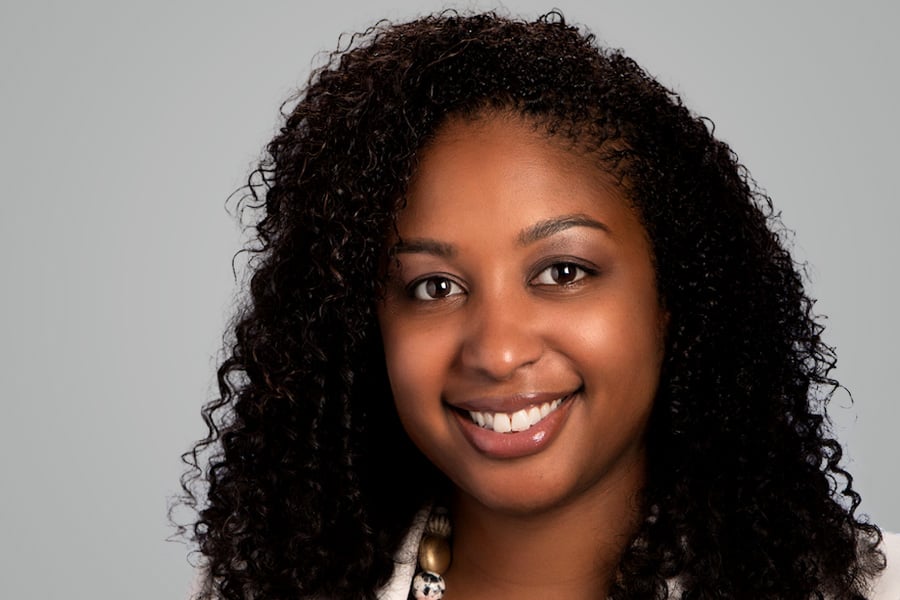

Kamila Elliott began her career as a bank teller at PNC Bank, where she worked during summer and holiday breaks while earning her bachelor’s degree and MBA from Penn State University.
One of her regular clients was an older woman who came in regularly to withdraw money and had little to live on outside of her Social Security. It inspired Elliott to learn more about the financial adviser who worked at her branch and how her passion for finance could be used to help others.
After 17 years at Vanguard, where she specialized in working with ultra-high-net-worth clients, and stints with Dimensional Fund Advisors, LPL Financial and Grid 202 Partners, an independent RIA, Elliott was named the first Black chair of the CFP Board in January. In March, she launched her own firm, Collective Wealth Partners, an RIA dedicated to creating wealth for BIPOC and other underserved communities.
But it was the experience of that PNC Bank customer that initially pulled her to advice, Elliott said during InvestmentNews’ 2022 Diversity, Equity & Inclusion Awards, which took place Wednesday in New York City.
“It really bothered me to see someone work their entire life but could not retire in dignity,” Elliott said. “What enamored me with this profession was the ability to educate and help someone like her to not be in that predicament again.”
In a conversation with William Bell, a senior divisional managing director at Charles Schwab, Elliott talked about her journey through the wealth management industry as a black woman and the mentors who helped her succeed, as well as the unique challenges she faced.
As a minority in the industry, Elliott often felt pressure to be perfect and set unrealistic expectations for herself, especially early in her career. She was the only Black woman in her new hire class of more than 20 people at Vanguard and felt immense pressure to pass her Finra licensing exams to keep the door open for other Black women to enter the profession.
“At times you feel like when you’re just one of the handful [of people of color], you want to set this example and model of perfection,” Elliott said. “I had to be more vulnerable and more authentic about who I am and the mistakes I’ve made, because that’s what engenders trust.”
Now, Elliott is doing what she can to inspire more people in minority communities to enter the financial advice industry. Though she’s proud that last year’s class of new CFPs was the most diverse in history, there's still a lot of work to be done before the industry reflects the racial diversity of the United States. Black people still only account for 3% of CFPs, despite making up 13% of the overall population, Elliott said.
“I have really focused on is just celebrating the profession and encouraging others to engage,” she said. “One of the things I tell those who are looking for a career is this is one of those professions where you can do well for others and do well for yourself.”
Elliott also offered advice for firms looking to improve how they attract and retain diverse talent. Firms need to be flexible in their hiring practice to expand the available talent pool, and ensure their corporate mission and vision aligns with communities of color, she said. For example, if a firm wants to bring in Black advisers, are they also working to attract Black clients?
She also warned firms to be careful of tokenism – hiring a single person of color just to check off a diversity box. If a firm wants to increase diversity, try to hire at least two people of color so they have another person to share the experience with, Elliott said.
“If you have a sense of belonging, you perform better,” Elliott said. “How can you have a sense of belonging if you’re the only person of your demographic at the firm?

Relationships are key to our business but advisors are often slow to engage in specific activities designed to foster them.

Whichever path you go down, act now while you're still in control.

Pro-bitcoin professionals, however, say the cryptocurrency has ushered in change.

“LPL has evolved significantly over the last decade and still wants to scale up,” says one industry executive.

Survey findings from the Nationwide Retirement Institute offers pearls of planning wisdom from 60- to 65-year-olds, as well as insights into concerns.
Streamline your outreach with Aidentified's AI-driven solutions
This season’s market volatility: Positioning for rate relief, income growth and the AI rebound
